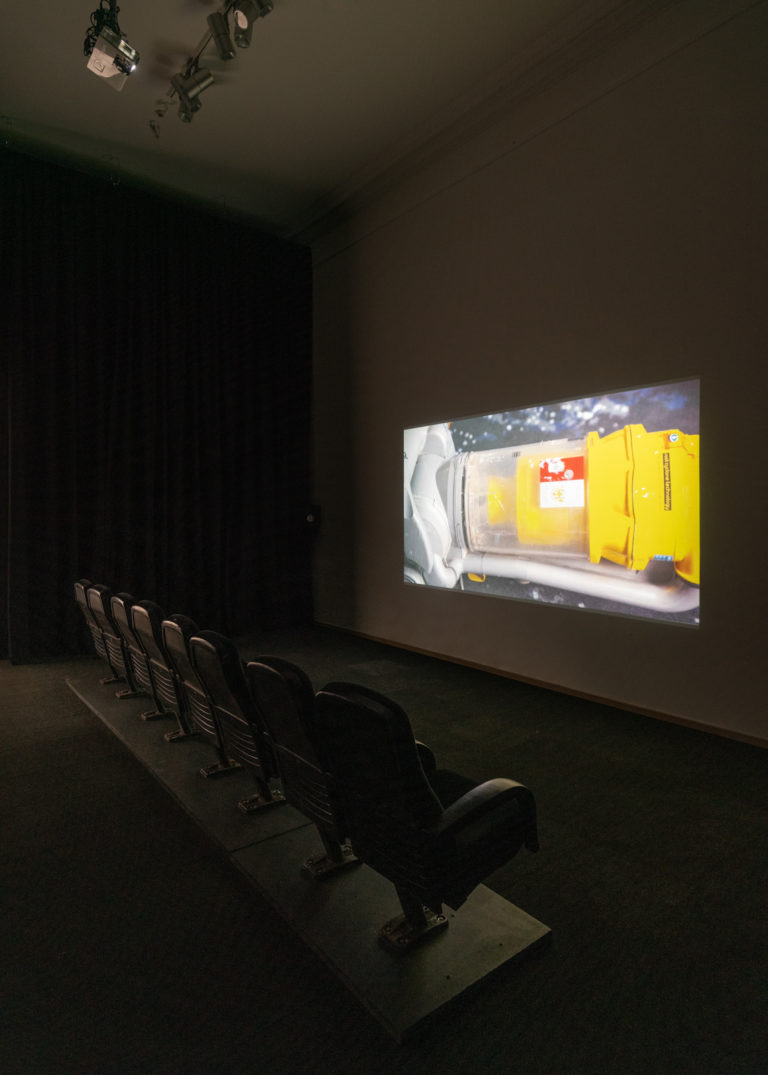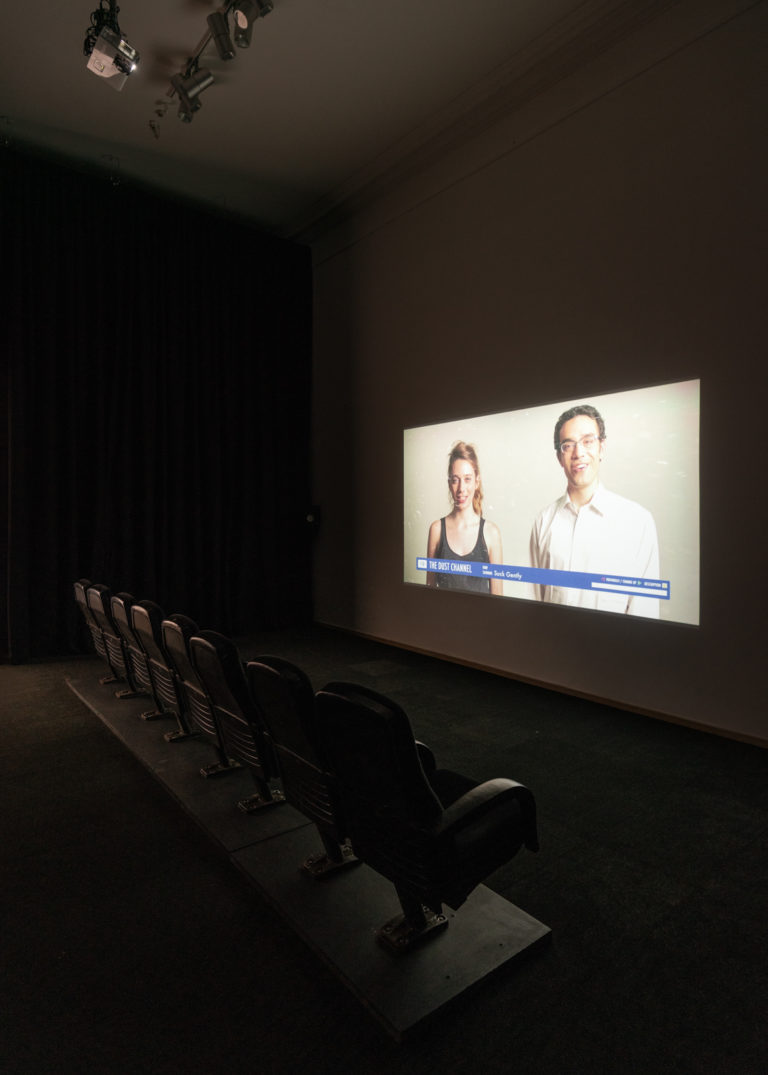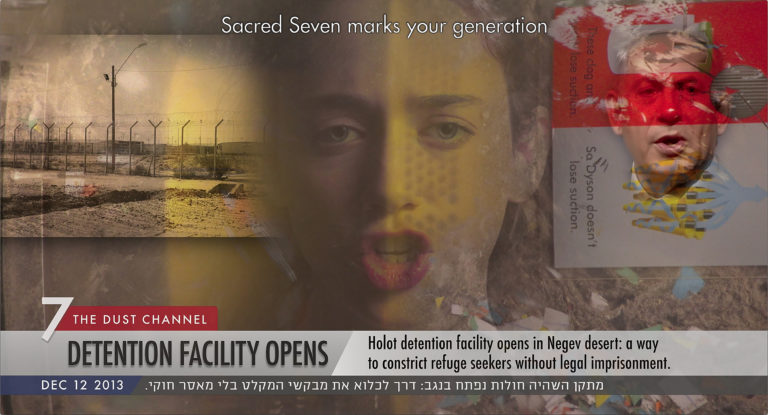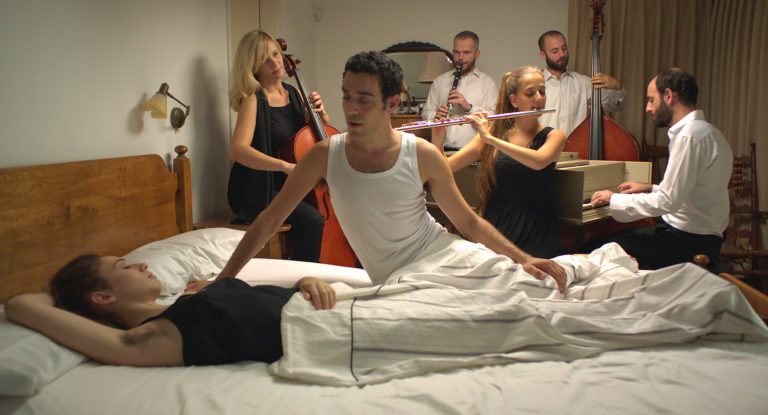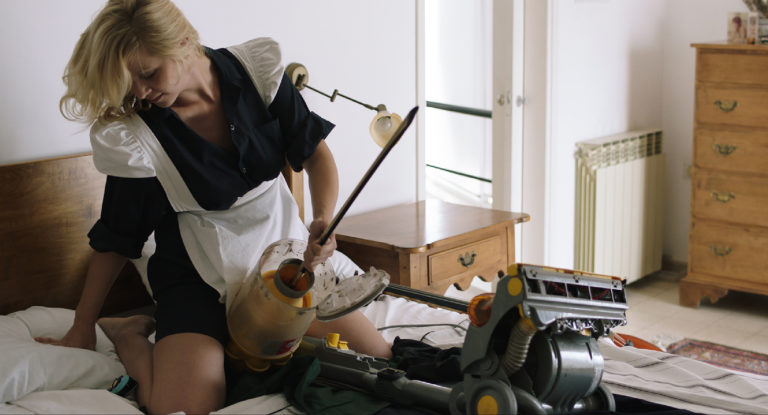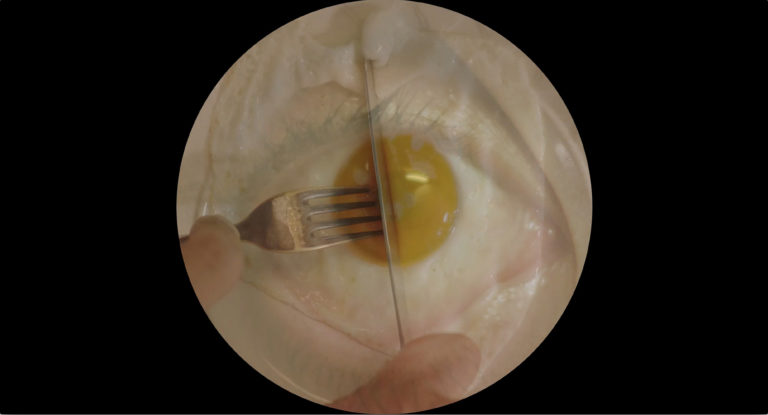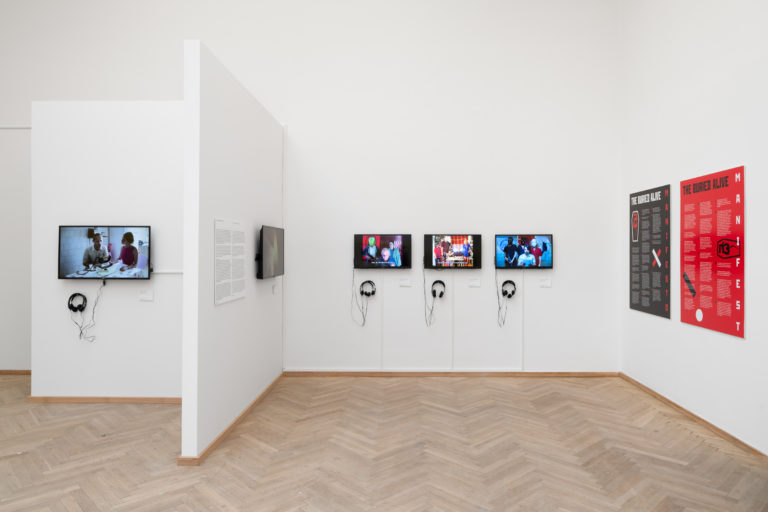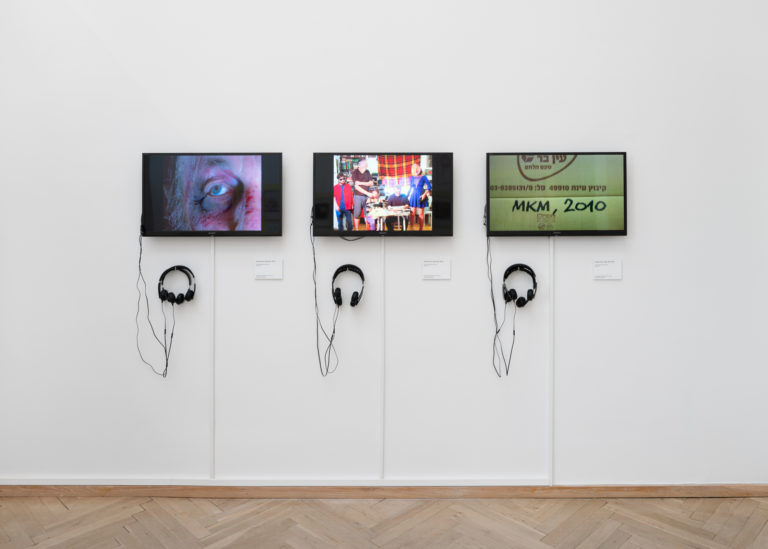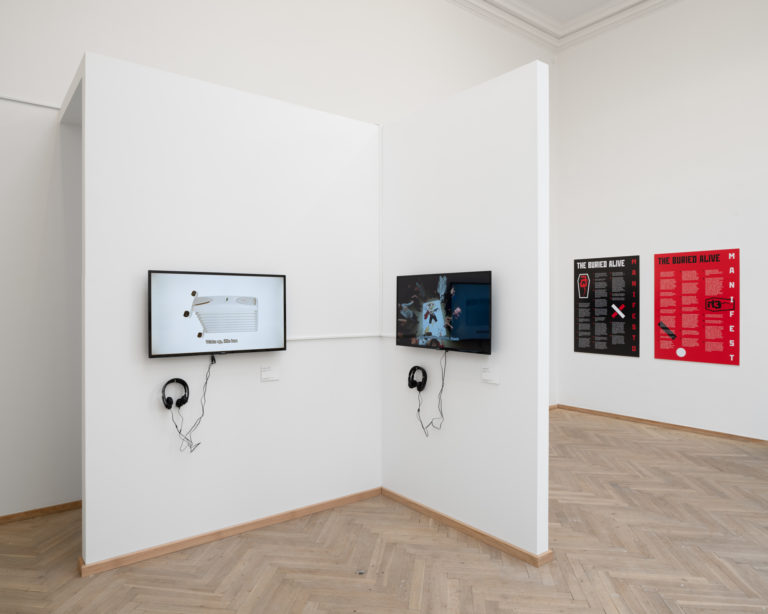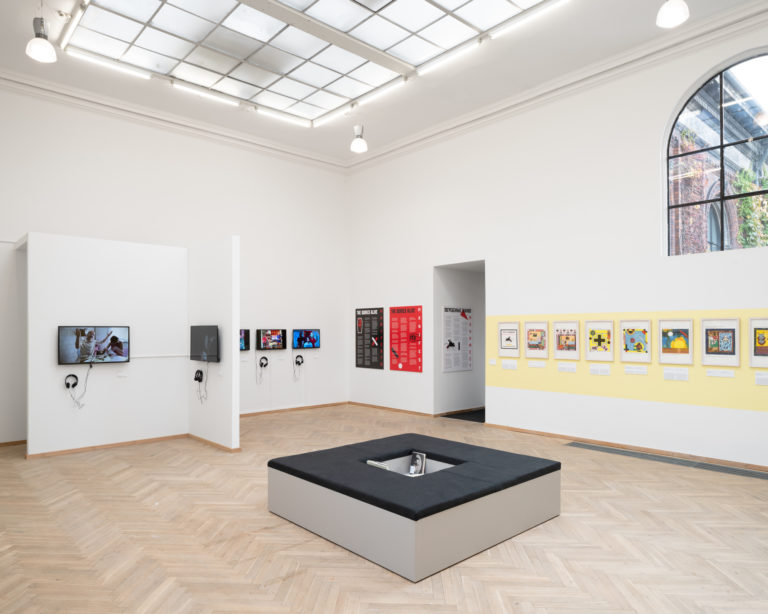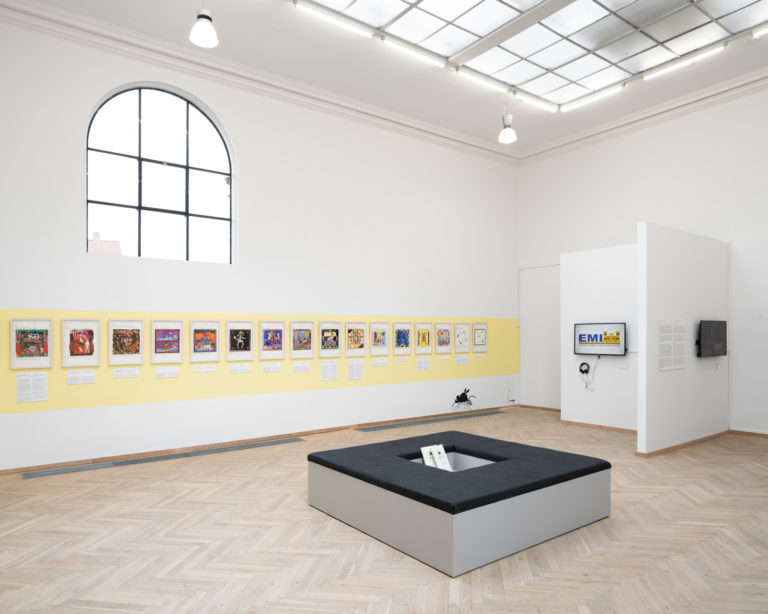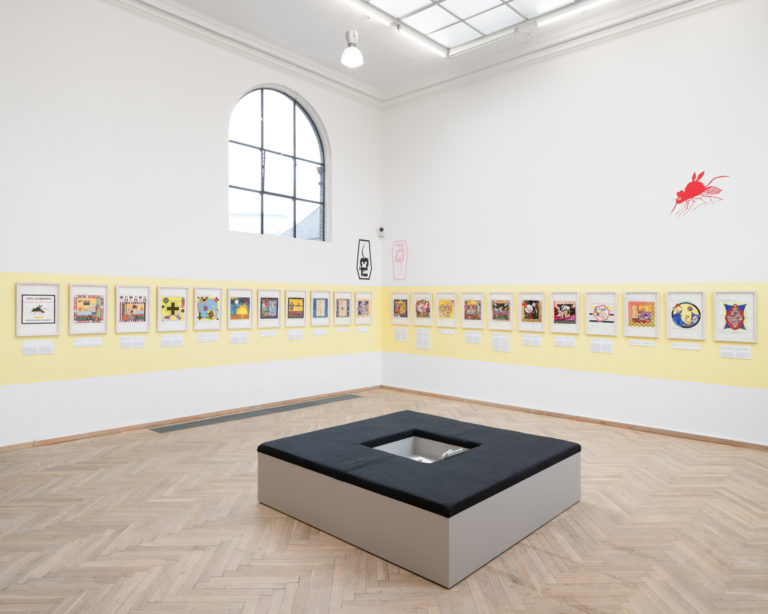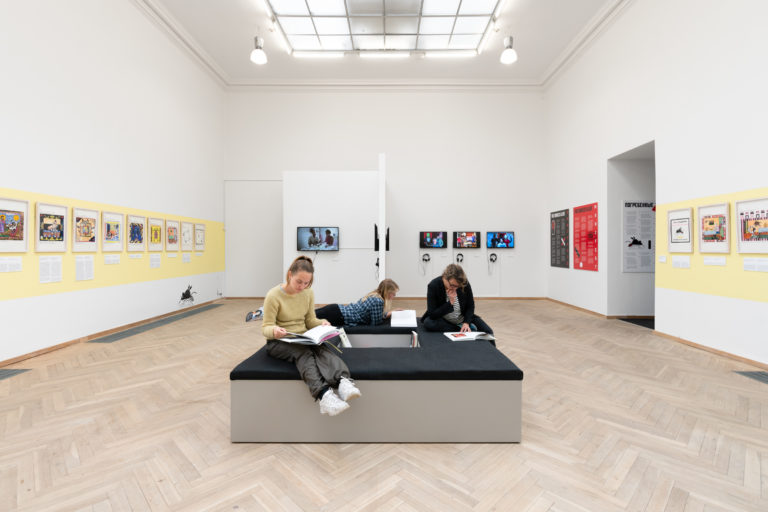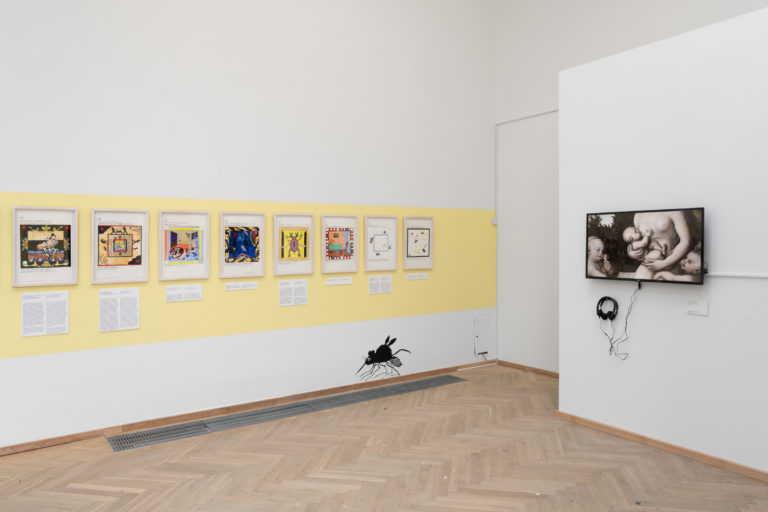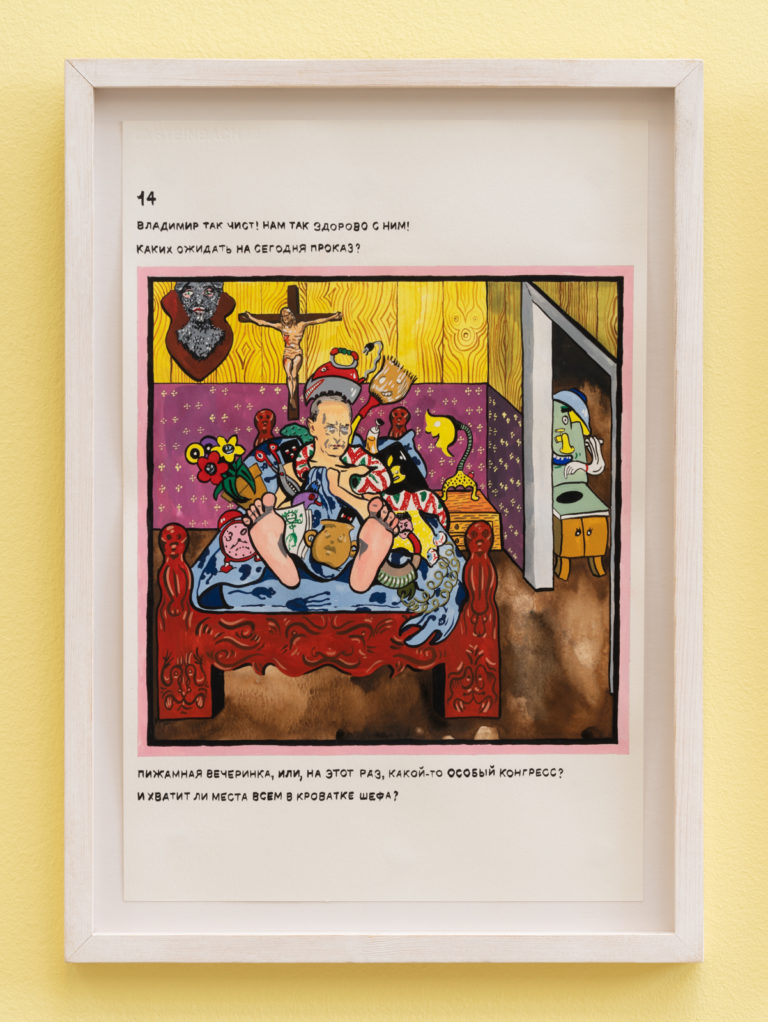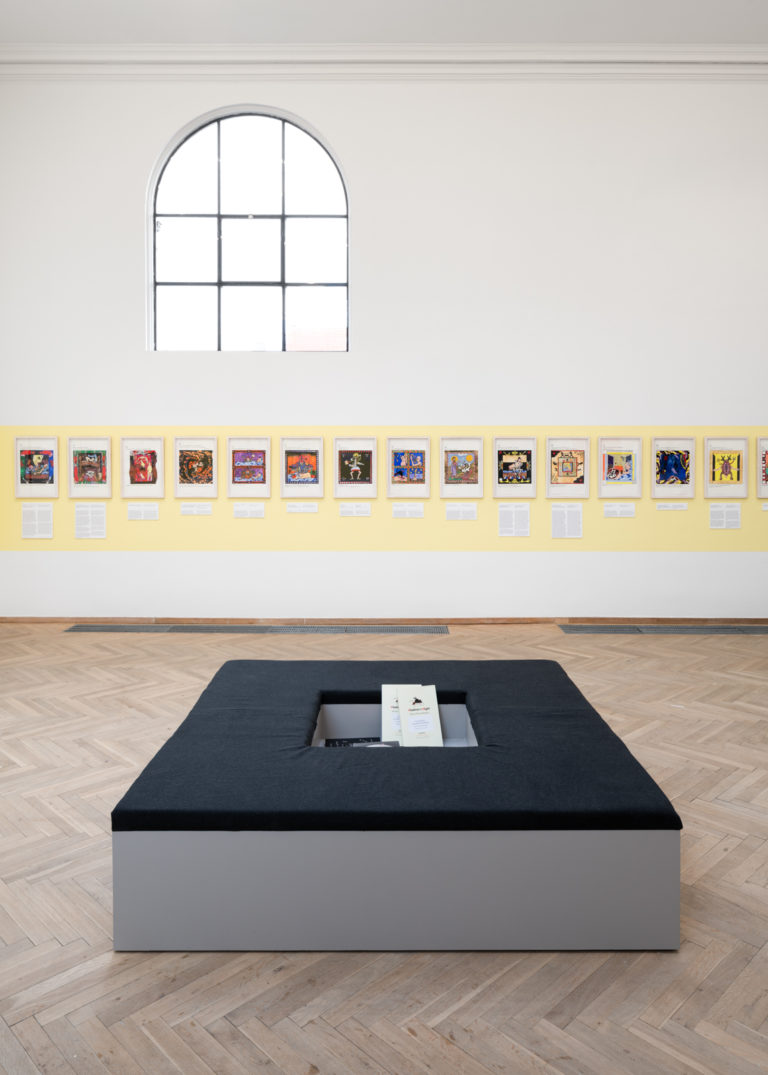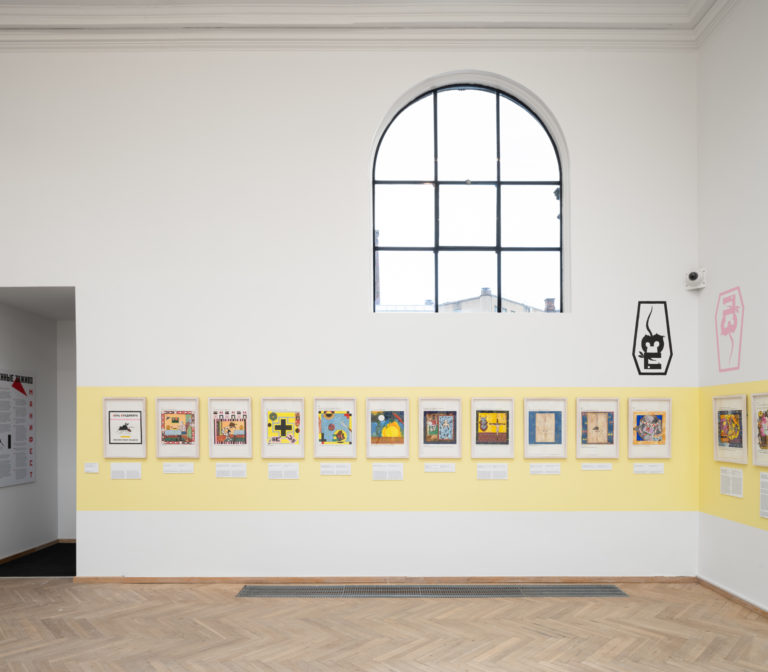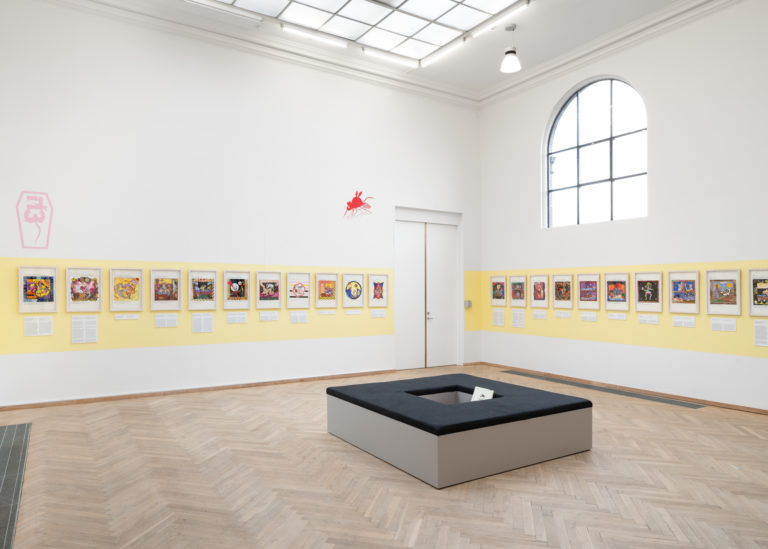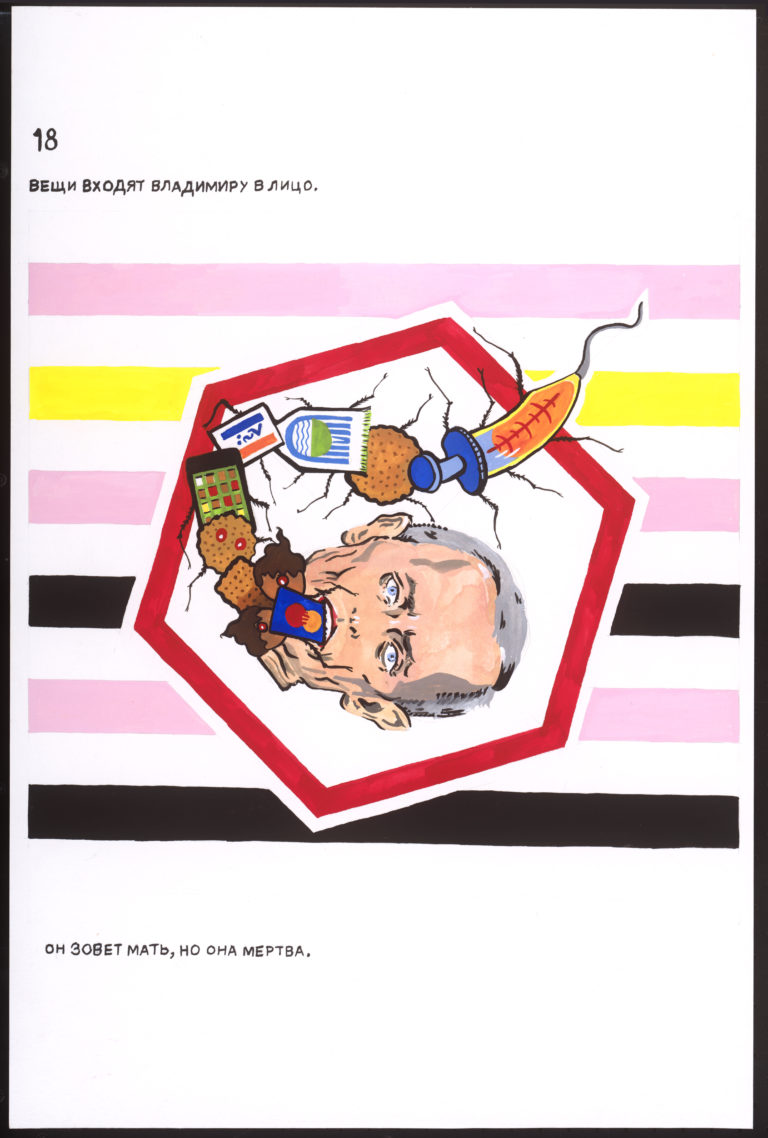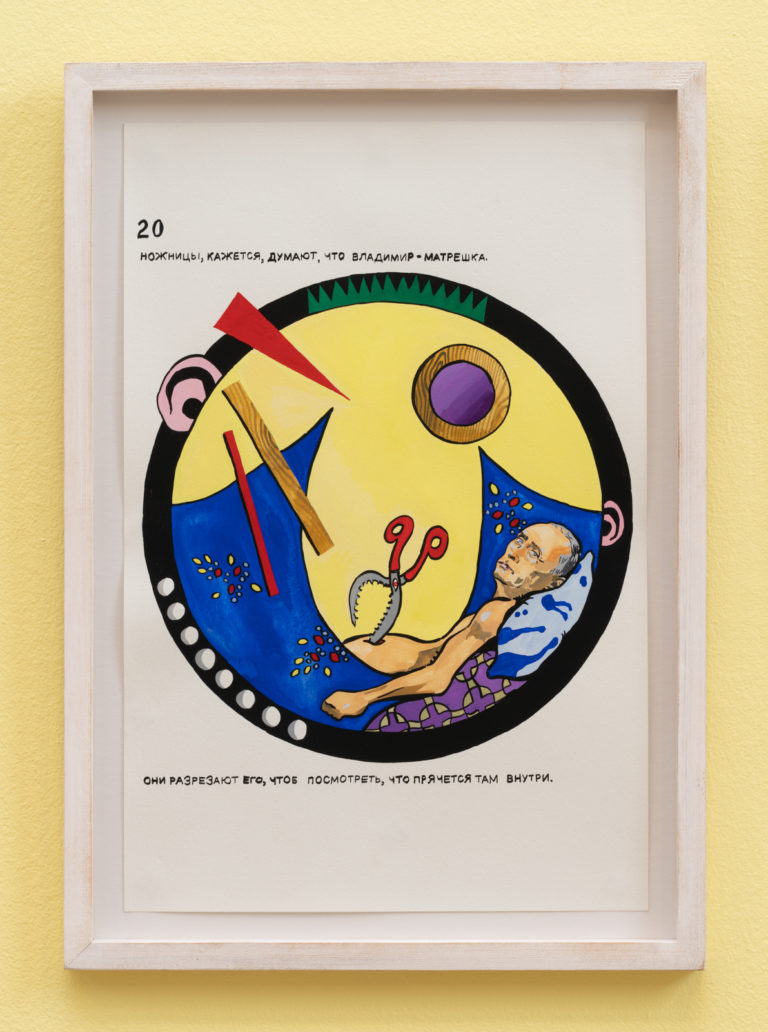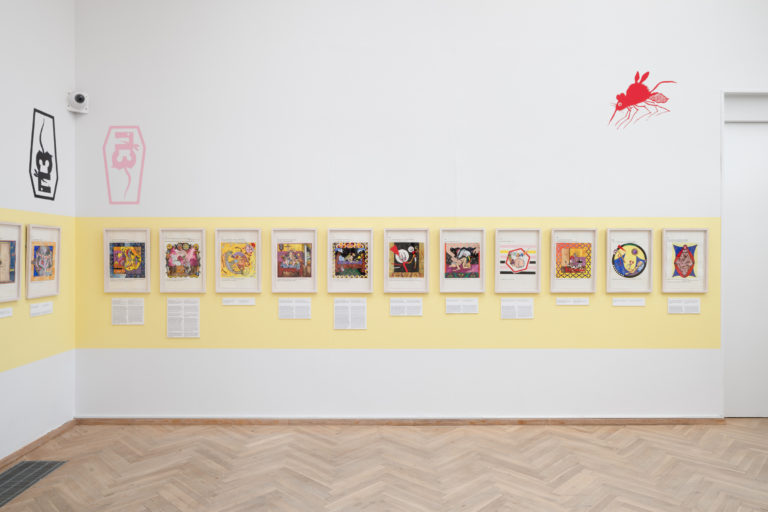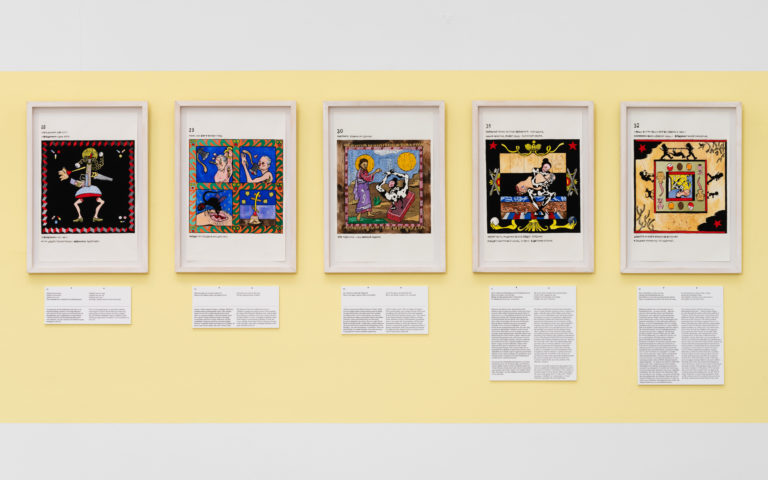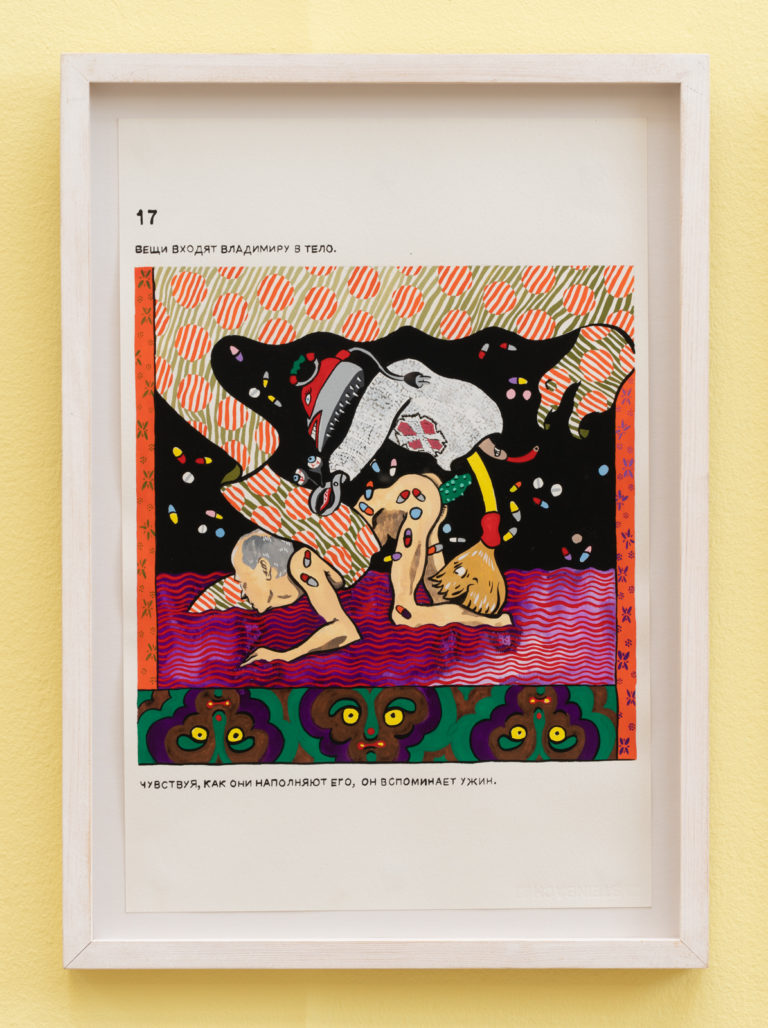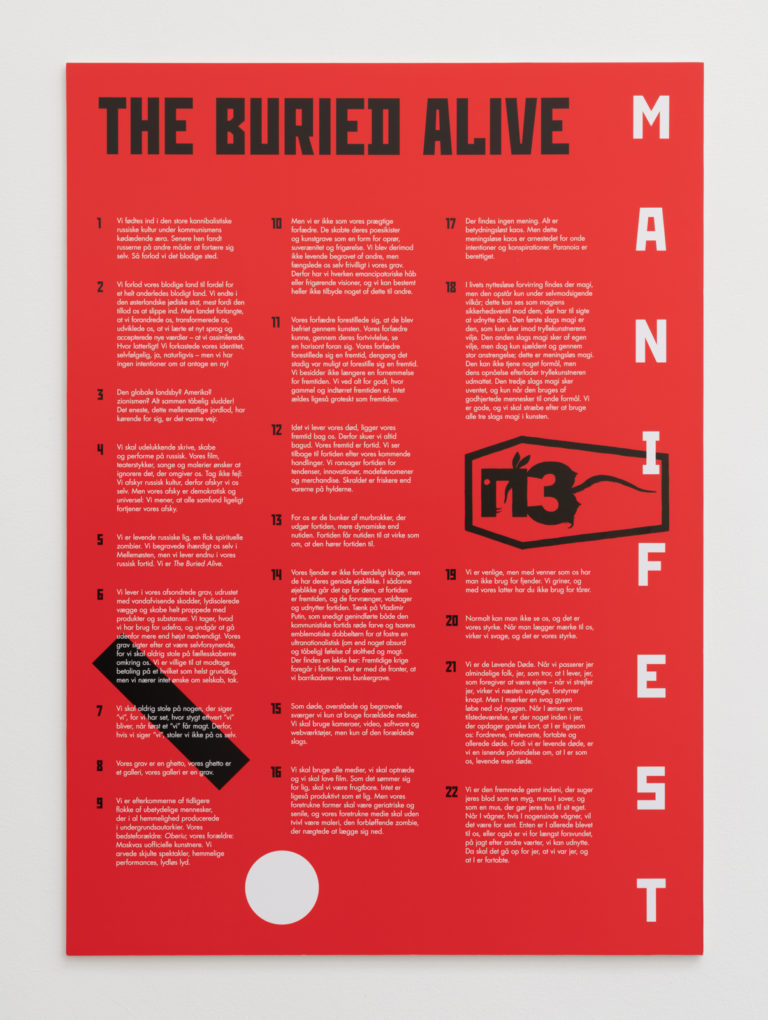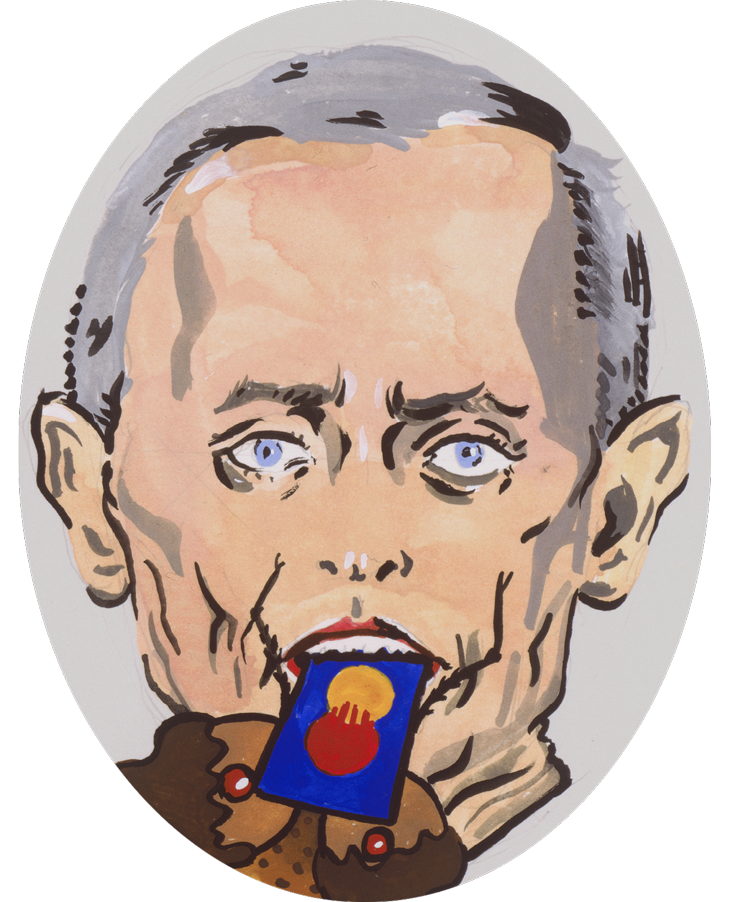
Roee Rosen, The Mosquito-Mouse and Other Hybrids, 31 October 2019 – 16 February 2020
The first-ever solo exhibition in Denmark to feature artist, writer and filmmaker Roee Rosen (b. in Rehovot, 1963) includes the work Vladimir’s Night (2011–14): an album of thirty-nine gouaches and verse that evolves around fetishism and power in satirical fashion while inspired by e.g. the underground tradition of the unofficial Moscow artists of the 1960s and 1970ssuch as albums by Kabakov and Pivovarov.
Vladimir’s Night is a hybrid of a children book, a gory martyrdom and a twisted political treatise in which the protagonist Vladimir is both a young child and a political leader. He is surrounded by animated objects and absurd scenarios. It all starts as a cheerful visual fable, but slowly slips into a violent and grotesque narrative about power and torture. Vladimir’s Night was supposedly created by Maxim Komar-Myshkin, a pseudonym for Russian poet Efim Poplavsky (1978–2011) who emigrated to Tel Aviv in the early 2000s. His fiction extends to include the artists collective he supposedly founded, the Buried Alive Group, whose videos and manifesto are also featured in the exhibition.
The exhibition also features the film The Dust Channel (2016), which attracted a great deal of attention at Documenta 14. This film forms the final chapter in a series based on Komar-Myshkin’s artistic life. The film is an operetta with a Russian libretto about purification in all its forms taking place in a bourgeois Israeli family whose fear of dirt, dust and any foreign matter results in an almost perverted devotion to household appliances. Rosen plays on the connection between dust and sand by incorporating the Israeli desert, where political refugees are detained and the fear of foreigners flourishes. The prison is called Holot, the Hebrew word for sand. An absurd and politically incisive fiction, The Dust Channel creates a polemic space for addressing current societal issues.
Roee Rosen (b. 1963) is an artist, writer and filmmaker as well as a critical voice in his native Israel. His practice focuses on power, forms of desire, and structural violence. Rosen has created an artistic universe that undermines normative hegemonies, using fiction and satire as he merges Israeli and global politics with myths and historical references. Using a variety of fictional characters and iconographic motifs, Rosen draws on – and transforms – historical avant-garde and popular media, political propaganda and classic fairy tales for children. Roee Rosen is a professor at both HaMidrasha College of Art, Kfar-Saba and the Bezalel Art Academy of Arts and Design, Jerusalem.
The exhibition is curated by Anne Mikél Jensen and supported by the Danish Arts Foundation, Grosserer L. F. Foght’s Foundation, Knud Højgaard’s Foundation, the Obel Family Foundation.
Hashtags to the exhibition: #roeerosen #kunsthalcharlottenborg

